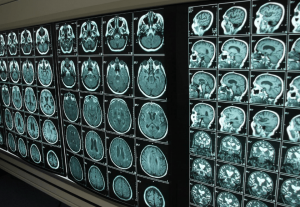Stagnant air leads to stagnant staff

Researchers have discovered that air quality within an office can significantly affect employees’ cognitive function, including response times and accuracy, and can also impact productivity.
As the COVID-19 pandemic evolves and employees begin to move back to the office, an integral part of limiting the spread of the SARS-CoV-2 virus in office environments is the ventilation of indoor spaces. However, preventing COVID-19 infections may not be the only benefit of well-ventilated offices; a new study has found that the air quality within an office can have a significant impact on employees’ cognitive function. The research, led by Harvard T.H. Chan School of Public Health (MA, USA), suggests that employees’ productivity could also be affected. This study adds to a growing body of research that has shown that air pollution can reduce cognitive function.
The study, published in Environmental Research Letters, assessed concentrations of fine particulate matter (PM2.5) and ventilation rates (measured using CO2 levels as a proxy) in offices across six countries by fitting environmental sensors into each participant’s workspace. Participants completed cognitive tests and surveys at prescheduled times throughout the day, or when the sensors detected levels of PM2.5 and CO2 that fell below or exceeded the standard thresholds.
The participants completed two types of tests. The first required them to identify the color of displayed words that was used to evaluate cognitive speed and inhibitory control. The second was a basic arithmetic test that assessed cognitive speed and working memory.
 Alzheimer’s disease starts in children with particulate matter air pollution as a critical risk factor
Alzheimer’s disease starts in children with particulate matter air pollution as a critical risk factor
A serious public health problem in progress includes the early accumulation of abnormal proteins in brain tissues, such as hyperphosphorylated tau and β-amyloid – the hallmarks of Alzheimer’s disease (AD) – detected in 11-month-old babies and their relentless progression in teenagers and young adults.
The researchers found that as PM2.5 and CO2 levels increased, accuracy on the color-based test decreased and the response times increased, indicating a decline in cognitive speed and inhibitory control. For the arithmetic-based test, the researchers found that increased CO2 (but not PM2.5) was associated with slower response times; however, as both pollutants increased, participants answered fewer questions correctly.
“The findings show that increases in PM2.5 levels were associated with acute reductions in cognitive function. It’s the first time we’ve seen these short-term effects among younger adults,” explained Jose Guillermo Cedeño Laurent lead author of the study. “The study also confirmed how low ventilation rates negatively impact cognitive function. Overall, the study suggests that poor indoor air quality affects health and productivity significantly more than we previously understood.”
The results of this study add to a growing body of evidence that shows air pollution has an impact on the brain and that increasing ventilation rates can benefit employee’s health and productivity.
“The world is rightly focused on COVID-19, and strategies like better ventilation and filtration are key to slowing infectious disease transmission indoors,” commented Joseph Allen, senior author of the study. “Our research consistently finds that the value proposition of these strategies extends to cognitive function and productivity of workers, making healthy buildings foundational to public health and business strategy moving forward.”